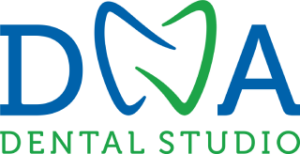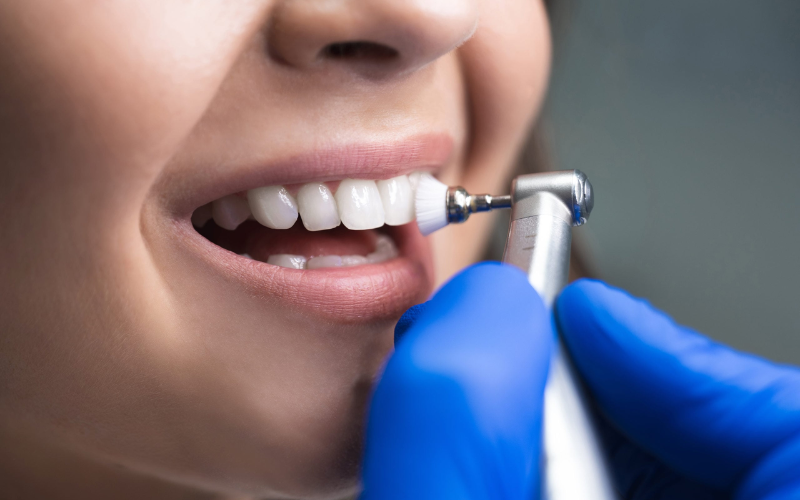Prophylaxis teeth cleaning, also known as professional dental cleaning, is an essential part of maintaining optimal oral health. It goes beyond daily brushing and flossing to remove plaque, tartar, and stains that can’t be eliminated by regular at-home care.
Whether it’s your first visit or you’re a regular at the dentist, prophylaxis cleaning offers numerous benefits that play a vital role in your long-term dental health. Let’s dive into the top benefits of this vital procedure.
What’s a Prophylaxis Teeth Cleaning?
It is a routine dental procedure performed by a hygienist or dentist to clean the teeth thoroughly. During the procedure, plaque and tartar that accumulate on the teeth and along the gumline are removed using specialized tools, such as a scaler, ultrasonic instrument, or polishing paste.
This cleaning procedure is crucial for preventing common dental issues such as cavities, gum disease, and bad breath.
1. Prevents Gum Disease
Gum disease, also known as periodontal disease, is one of the leading causes of tooth loss worldwide. It starts with the buildup of plaque and tartar along the gumline, which can lead to gum inflammation (gingivitis). If left untreated, this condition can progress to more severe forms of gum disease, affecting the bone and tissues that support the teeth.
How Prophylaxis Helps?
- Removes plaque and tartar buildup that contribute to gum infection.
- Reduces the risk of gingivitis and periodontitis.
- Promotes healthier gums and reduces swelling or bleeding.
By removing these harmful deposits, prophylaxis teeth cleaning ensures that your gums remain healthy, preventing the onset of gum disease.
2. Prevents Cavities and Tooth Decay
Even with the most diligent oral care routine, plaque can still build up in hard-to-reach areas. Plaque is a sticky, bacteria-laden film that forms on teeth after eating. If plaque is not removed, it can turn into tartar, which contributes to cavities and tooth decay.
How Prophylaxis Helps?
- Removes plaque and tartar buildup that might lead to tooth decay.
- Helps to maintain a smooth surface on teeth, reducing the chances of plaque accumulating.
- Protects against tooth sensitivity by cleaning the area between the teeth and gums.
Regular prophylaxis teeth cleaning can prevent cavities from developing and reduce the need for more invasive treatments such as fillings or root canals.
3. Improves Bad Breath (Halitosis)
Persistent bad breath (halitosis) is often caused by bacteria trapped in plaque and tartar. These bacteria release sulfur compounds, which can lead to foul-smelling breath. Prophylaxis teeth cleaning eliminates these bacterial buildups, giving you a fresher, cleaner mouth.
How Prophylaxis Helps?
- Clears out bacteria and debris from the surface of the teeth and gums.
- Eliminates the odor caused by decaying food particles and plaque.
- Leaves your mouth feeling clean and refreshed, boosting your confidence.
Having a prophylaxis cleaning can significantly reduce bad breath, especially if it’s caused by plaque and tartar buildup.
4. Brightens Your Smile
Over time, food, drinks, and tobacco can leave stains on your teeth, making your smile appear dull and discolored. While brushing and flossing help maintain oral hygiene, they can’t always remove deep stains or polish teeth.
How Prophylaxis Helps?
- Removes surface stains from coffee, tea, tobacco, and other substances.
- Polishes teeth, making them look brighter and more uniform.
- Helps to maintain the overall aesthetic appearance of your smile.
Prophylaxis cleaning helps restore the natural whiteness of your teeth, giving you a more vibrant and radiant smile.
5. Helps Detect Dental Problems Early
During a prophylaxis teeth cleaning appointment, our dentist or hygienist not only cleans your teeth but also conducts an exam to identify early signs of dental problems. This includes checking for cavities, signs of gum disease, oral cancer, or tooth fractures.
How Prophylaxis Helps?
- Detects cavities before they become serious and require extensive treatments.
- Spots early signs of gum disease, allowing for earlier intervention.
- Identifies conditions such as tooth fractures or signs of teeth grinding that may need attention.
Regular cleanings give the dentist an opportunity to spot any issues early, allowing for more effective and less invasive treatments down the line.
6. Maintains Overall Health
Oral health is closely linked to overall health. Poor oral hygiene can contribute to several systemic health issues, including heart disease, diabetes, and respiratory infections. Regular dental cleanings can help lower the risk of these complications.
How Prophylaxis Helps?
- Reduces bacteria in the mouth that can enter the bloodstream and affect heart health.
- Improves control over blood sugar levels in people with diabetes.
- Reduces the risk of respiratory issues by removing bacteria that may be inhaled into the lungs.
Maintaining a healthy mouth through regular prophylaxis cleaning not only benefits your teeth and gums but also plays a role in preventing broader health problems.
7. Cost-Effective Preventive Care
Prophylaxis teeth cleaning is an affordable and preventive dental treatment. By investing in regular cleanings, you’re reducing the risk of needing expensive dental procedures like fillings, root canals, or gum disease treatment.
How Prophylaxis Helps?
- Prevents the development of severe dental issues that require costly treatments.
- Helps reduce the need for frequent dental visits due to emergencies or extensive care.
- Promotes long-term oral health, saving you money in the future.
While regular cleanings may seem like an expense, they actually save you money in the long run by preventing more costly dental procedures.
Prophylaxis teeth cleaning is more than just a routine dental visit—it’s an essential part of maintaining a healthy, beautiful smile and preventing a variety of dental issues. From preventing gum disease and cavities to enhancing your breath and brightening your smile, the benefits are undeniable.
Scheduling regular cleanings with our dentist will ensure that your teeth stay in top shape, reducing the need for invasive treatments down the road. Don’t wait for dental problems to arise—take proactive steps today to maintain a clean, healthy mouth.

